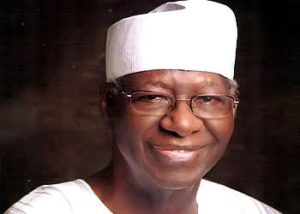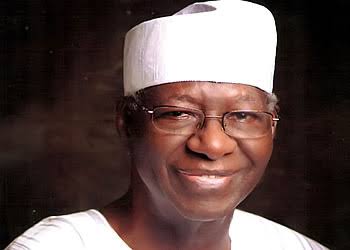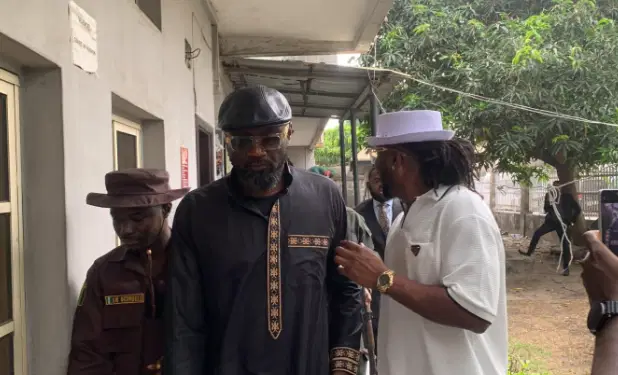
The People’s Democratic Party’s former Chairman of Board of trustees, BoT, Chief Tony Anenih, has said that the presumed winner of the June 12, 1993 presidential election, Chief Moshood Kashimawo Olawale Abiola, kept the leadership of the party in the dark when he entered an agreement with then Secretary of Defence, General Sani Abacha to overthrow the Interim National Government headed by Chief Earnest Shonekan on November 17, 1993.
Chief Anenih, who made this known in his book, “My life and Nigerian Politics” which was presented yesterday at the International Conference centre, ICC, in Abuja, said Chief MKO Abiola mistakenly sealed the accord thinking that General Sani Abacha will hand over power to him (Abiola) after sacking Chief Shonekan.
He said, “When the Abacha take-over was announced, there was jubilation by all those who knew of the “agreement” between Chief MKO Abiola and General Sani Abacha. The Nicon Nuga Hotel was in celebration mood as all those senators who had a pre-knowledge of so called agreement and who anticipated that Abacha would handover to Chief Abiola the next day or immediately were shouting “MKO! MKO!! Presido! Presido.”
Chief Anenih was the then National Chairman of the defunct Social Democratic Party, SDP, under the platform which the late MKO Abiola contested the presidential election that was annulled by the regime of former military President Ibrahim Badamosi Babangida.
Anenih, who described the agreement as “phoney and hollow”, also revealed how he advised the late business mogul cum politician against declaring himself the president of Nigeria.
According to him, “Chief MKO Abiola as indicated earlier has said that if you want to go to Kano, going by air or going by road does not make any difference as long as you get there.
“His interpretation of this was that going by air meant Abacha taking over from Shonekan and he, Abiola, being swore in the next day. Going by road was waiting till March, 1994, when Shonekan would use the National Assembly to hand over to him because he actually won the election.
“Unfortunately, for Chief Abiola, he was, in fact, no landing, and Kano as the desired destination proved to be a fantasy.
“It is a pity, indeed, that Chief Abiola kept the leadership of the party away from his arrangement with General Sani Abacha to take-over from Shonekan. If he had brought it to the notice of the leadership of the party, he would have been well advised.
“The “agreement” was phoney and hollow. It was an agreement which was inexplicable and inexcusable in its folly and terrible in its consequences.”
Chief Anenih known in the nation’s political arena as Mr. Fix it, further revealed that, “In a similar but not exactly identical set of circumstances, I had advised Chief MKO Abiola against declaring himself the president of this country when frustration arising from Abacha’s refusal to hand-over to him drove him into the extreme line of thought.
“I spoke to him on telephone pointing out that the army was not there to back him up. He had no police support, and not even the immigration or customs would back him. I advised strongly against his intended line of action. In reply, he merely said, “Mr. Chairman, you are a very good man. Anyway, we will discuss that one later” and he replaced the phone.”
Anenih noted that, “As I did not want to be blamed later for not advising Chief Abiola correctly, I advertised my advice the following day in some of the daily newspapers. “
In his remarks, former President Goodluck Jonathan, disagreed with the position of the author, Chief Anenih who said he was quitting politics.
Jonathan noted that although the former PDP BoT Chairman may be excused from attending political meetings, he remained a political leader and should continue till death.
The former president said that himself will remain a member of the PDP despite the fact that he had not been able to attend any formal meeting of the party since he left office.
His words to Anenih, “we will continue to consult you in the areas of security and politics; you will continue to mentor us.”
Earlier, the Chairman of the occasion and former Head of State, General Abdulsalami Abubakar described Anenih as a political heavyweight, mentor to many and man of unalloyed loyalty.
In his book review, Professor Epiphany Azinge, noted that Anenih was a recurring decimal in the country’s politics, and said, “like him or hate him, you cannot ignore him.”
He said that the country had never seen and may never see again any politician of such sagacity as Anenih.
Azinge who commended the tenacity of purpose of the former Minister of Works argued that Anenih was no longer just a leader but an institution. He described the book as a world-class autobiography.”





